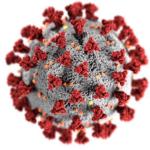Let’s see, now: When is a sin not a sin?

Sometimes we humans can’t seem to win for losing.
Clearly, our collective dependence on fossil fuels raises myriad issues that we’re at least gradually beginning to address. Alternative energy sources are springing up and proliferating, almost as quickly as our infrastructure can support them, including more solar power, wind, hydroelectric, nuclear and biofuels, among others.
The controversy around nuclear power, including the security risks and toxicity of the remaining byproducts, has been passionately debated for decades now. Some see this as a viable alternative, while others consider nuclear power to be laden with disastrous potential.
Hydroelectric power is an exciting renewable source of power, but there are opponents who decry the ecological damage of dams and turbines and contend that the negative consequences of this alternative are worse than its benefits.
Wind power seems a brilliant solution, harnessing and endless stream of currents canvassing the globe. But there are some who have serious concerns about the imbalance the giant windmills present in their habitats, killing owls, bats and other creatures of flight in alarming numbers. On top of this, some neighborhoods simply don’t want to have their views cluttered by such monstrous eyesores.
Hydrogen fuel cells seem like a swell idea, until you consider the energy it takes to create, process and transport the hydrogen fuel to begin with. Electric cars are attractive, until we imagine the possibility of millions of deceased batteries with their toxic innards leaking into our water supplies. Plus, unless you are using something other than traditional electricity sources to charge up your car, the source of that power is most likely coal.
So far, I’ve not heard the beef with solar power, but I’m sure there’s at least one out there. Send it my way if you know of one.
The most recent culprit is biofuels. Colorado is among the frontrunners in the trend to convert crops such as wheat, corn and the like into fuel, which may help reduce our dependence on oil. However, now it’s suggested that the dramatic spike in world food prices is, in part, due to the increased demand for biofuel material that might otherwise feed starving people.
Believe it or not, on National Public Radio this week I heard one reporter claim that leaders in some developing nations are charging the proliferation of biofuels as a crime against humanity.
Are they serious? Can anyone really liken the distillation of corn crops into usable, renewable fuel to genocide? My first reaction was probably like that of many readers, which was to dismiss this as an overblown polemic, intended to grab headlines more than anything else.
But then I got to thinking a little more about it. If, in fact, we’re using viable food in volumes that would make any dent in the consumption of global oil, it would have to have a major ripple effect in the world food economy, and people most likely will die as a result.
Did Willie Nelson and his fellow biofuel advocates ever consider the potential for such complications when they initially championed the benefits of this alternative approach? Probably not. Sometimes, we only recognize the impact of our decisions after the fact. So is it a sin to be indirectly responsible for people dying of starvation, even if we had the best of intentions for a win-win outcome?
My estimation is that it becomes a sin when you know the result of your actions and still do nothing to change it. I call this a sin of occlusion: willfully blocking out reality to keep it from infringing on our personal comfort or way of life.
It would also be nice if we actually had to do something in order to commit a sin, and thus, feel a little more agency and control over our own sins. But unfortunately, I would suggest we can sin by simply not responding to a need or an injustice, once we know about it. I call this a sin of accountability.
So we’re no more off the hook in avoiding the truth than we are in doing nothing about it once we know it.
It’s almost like this sin thing, if someone took it seriously, could change someone’s entire way of life, from the bottom-up.
But where in the world to begin?















